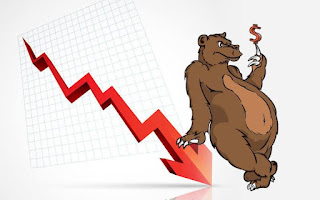Human behaviour and Trading Psychology
Written by SLIMBEVI
Edited by Ijewemen Fortune
The modern human brain was formed over 200,000 years ago during an Immediate Return Environment.
Modern society shifted to a predominantly Delayed Return Environment only in the last 500 years.
The modern human brain spent hundreds of thousands of years evolving for one type of the environment (immediate returns) and in the blink of an eye, the entire environment changed (to delayed returns).
*The human brain is designed to value immediate returns.*
*Your inner caveman does the trading when you are stressed, In other words, primitive survival instincts will take over the decision-making in critical moments.*
That's why you see people having great success demo trading with fake money when they're calm, but when they deal with real risk, and their real capital is on the line with an uncertain outcome… suddenly, the game is very different. Your money at risk = your life at risk to your inner caveman brain. So survival instincts kick in and your brain forces you to take action to avoid the pain of risk at all costs.
Humans are wired to want to win and survive at all costs, this served a very important evolutionary purpose.
But this hard-earned trait is used against us in trading, as having success in the markets is based on probability, not a certainty.
It’s more like -> Embrace uncertainty -> Take the risk or lose the chance.
Your Brain's short-term survival orientation will compromise your need to take a long-term perspective for your edge to work in the heat of the moment.
Note: When emotion goes up, decision-making goes down.
When you are calm and collected, all incoming sensory information goes into your thinking brain (higher cortex).
When you are stressed, the amygdala, your lower-minded animal brain, sees this sensory information coming in, and it makes a decision based on past learning about whether or not that information presents a dangerous situation or not.
When you have your capital at risk in an uncertain market environment, your amygdala sees this as a direct threat to life and instantly goes into fight or flight mode, and your thinking brain is literally disabled.
And it leads to common psychological errors in trading such as;
- fear of execution
- fear of loss
- moving your stop loss to breakeven prematurely
- taking profits too early
- chasing trades (FOMO -> Fear Of Missing Out)
One thing to keep in mind is that we as humans are not logical but rather emotional beings who rationalise.
Biologically, our brains are built around fear and the avoidance of fear as a survival mechanism.
The brain has to be trained to regulate impulses so that we can make the distinction between biological fear and the psychological discomfort of risk management.
The part of your mind that seeks actuality, is your higher-minded animal.
As a trader, you must strive to achieve objectivity.
In other terms, you must seek to see the entire picture, including the entire array of less-complete realities.
Freeing ourselves from the power of fear is how we change our nature and how we trade.
Until you develop the skills and tools to approach your fears, they will control you and your trading.
Acknowledging your fears and creating the courage to push through them is essential to your growth as a trader, otherwise, you will be emotionally robbed of your greatest opportunity.

















Comments
Post a Comment